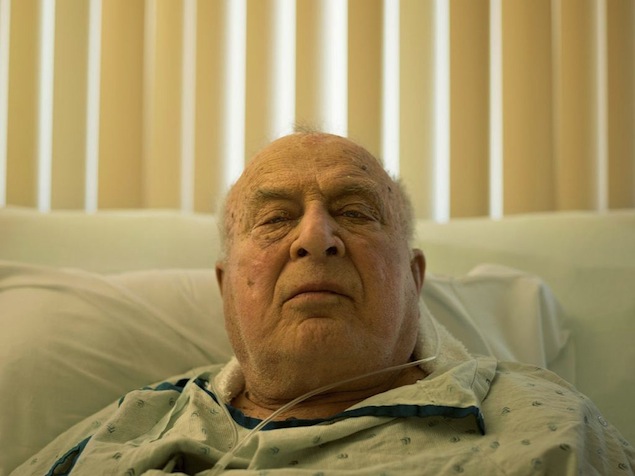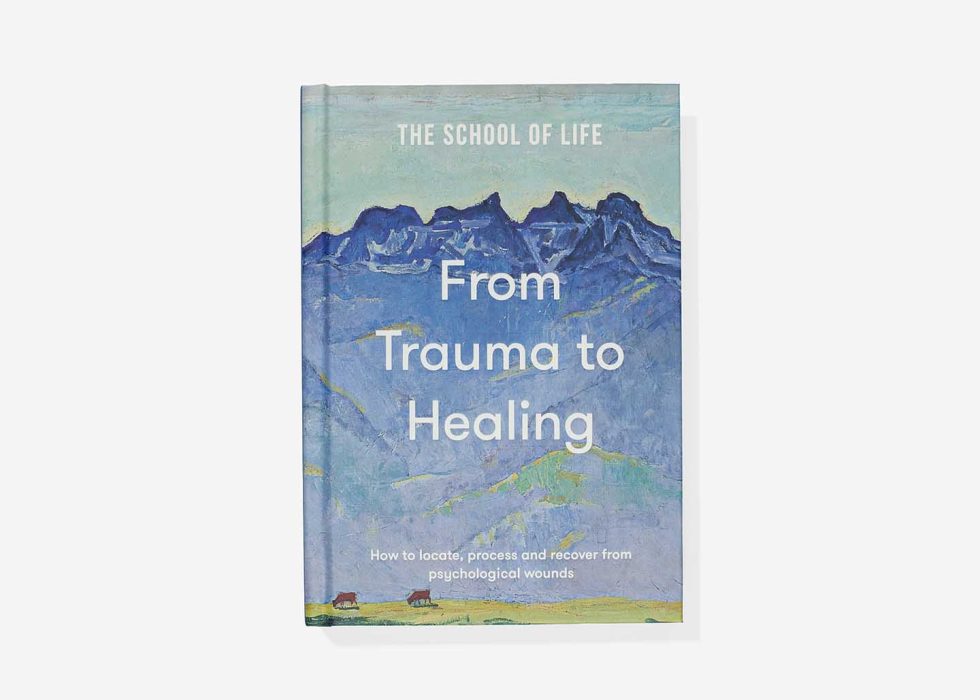Self-Knowledge • Fulfilment
On Final Things
For all of them, it started much as it will for you: a strangely persistent itch at the back of the head, a discomfort on the left side, a lump fingered in the shower. Something it became impossible to ignore.
Then came the trip to the doctor, the encouraging words from friends, the dropped voices and then the news, which – despite all the evidence – continues to surprise us all, to seem like an error, an appalling clerical mistake from Satan.

Nelly: “After I received my diagnosis, I cried every day.”
Some submit at once, a few vow to fight what science insists can never be vanquished, most veer painfully from hope to despair.

Sarah: “When I first heard, I said we’re going to fight this, we’re going to beat this…”
The American photographer Andrew George took his camera into the hospices of California that we would otherwise never dare to visit.
He wanted unremarkable people, but they emerge as anything but. Their story will be ours, an idea that today still remains almost impossible to admit to ourselves or to pay due homage to, through the rounds of ordinary distractions and commitments. We seem, day to day, simply so eternal, unfortunately for us…
The dying have momentous things to say to all of us, even when they say them in simple unschooled words. Their pronouncements become like those of prophets; they have gone ahead of us to tell us the truths we don’t have the courage for right now. These men and women, none of whom have more than a few days left to live, speak with the clarity, the lack of pretension, the utter sincerity of the damned.

Abel: “You have a one way ticket, don’t waste it!”
The dying are the great appreciators of this world: they notice the sunshine on the roller blind, the laughter of a grandchild, another breath… And they know what spoilt ingrates we all are, not stopping to register the wonder of every passing minute. They were once like us of course. They know they wasted decades and from their beds, they strive to tell us of their folly and warn us of our own.

Kim: “There’s so many things to enjoy and we don’t enjoy them.”
It is the time for confession and for admissions of weakness. This is no occasion for pride. You can admit all the many things that went wrong, the evasions, cowardice, bitterness and betrayals that are the hidden mortar of every life.

Donald: “Even though my ex-wife remarried and loved another man, I still love her.”
The things that the dying cherish most have no connection with what is deemed important by the competitive world. Childhood is always mentioned, the time when death had no presence yet, when there were only nightmares that could be comforted away by a loving hand. Now the nightmares have colonised the days. This is worse than any ghost or zombie a childhood imagination could have dreamt up.

Chuck: “Some of my favourite times were as kids; me and my brothers used to play baseball and my mom would join us.”
We may want to cry, for them and of course, as it should be, for us.
Death is the great re-organiser. It refashions ambition, it encourages us to attach new value to things we hardly would have thought of as goals of any kind.

Irene: “I would love to be seventy years old.”
We will leave very few traces. Our monuments are shockingly small, but all the more genuine and heartbreaking for being so. We can count ourselves lucky for living on in the hearts of a few for half a decade or so.

Odis: “I’ll be remembered for my red beet jam and quilting…”
Every age should be in search of effective ways to keep death in mind. Once we would look at skulls or at martyrs, hourglasses or withered flowers. Now we can accompany a photographer down the linoleum departure gates of the dying. The task of art is to give us access to experiences it is otherwise hard to get hold of and to render their moral vivid to our distracted imaginations.
The images are desperately sad but not necessarily depressing. Rather than try to crush us with the remembrance of death, they are on the side of life, they give us new determination to make sure the coming days are not wasted like so many others have been.
It no longer matters quite so much whom we squabbled with and what our anxieties may currently be about. With death in mind, we are set free from things that shouldn’t constrain us in the first place: our fears, wrong preoccupations, false values.
Unfortunately, we’re likely to forget the wisdom on offer here within hours. We’ll be back to losing perspective – and overlooking the sunlight and the charm of the breeze. These are the sort of ungrateful minds we all have – which is why we continuously need the resources of art to renew our connection with the unbearable but deeply necessary truths.
The images were taken by Andrew George: www.rightbeforeidie.com.
To join in the conversation, please follow the #RightBeforeIDie campaign.



























